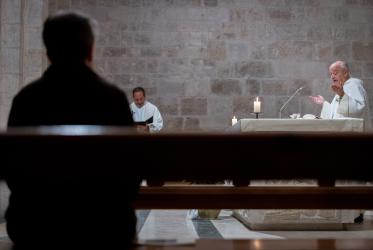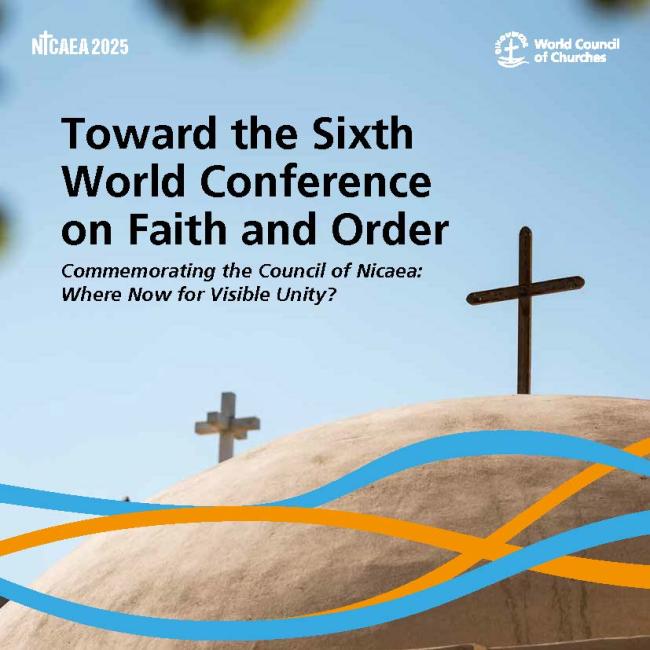Displaying 1 - 20 of 434
Voice of churches vital during UN women’s rights talks
28 March 2024
Des mots de ténacité résonnent dans les décombres
25 March 2024
Compendium of Promising Practices of African Faith Community Interventions against Paediatric and Adolescent HIV
Executive Summary
23 March 2024
Words of steadfastness ring from the rubble
21 March 2024
Que peuvent faire les Églises pour prévenir l’esclavage moderne?
26 February 2024
Toward the Sixth World Conference on Faith and Order
Commemorating the Council of Nicaea: Where Now for Visible Unity?
24 February 2024













